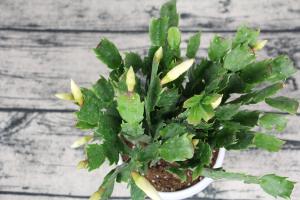Are Tomatoes a Perennial Plant?
Tomatoes are one of the most commonly grown vegetables, but they are technically considered a fruit. They are grown all over the world, and people are always interested in learning about different ways to cultivate them. One of the frequently asked questions is whether tomatoes are a perennial plant or not. In this article, we will explore the answer to this question in detail.
What is a Perennial Plant?
A perennial plant is one that can survive for many years, usually more than two, and can produce for several seasons without being replanted. Perennials are different from annuals, which have a one-year life cycle, and from biennials, which live for two years. Perennials get through the winter by sending reserves of food and energy to their roots, underground bulbs, or other storage organs.
Are Tomatoes Perennial or Annual Plants?
Tomatoes are classified as an annual plant, not a perennial. The reason behind this classification is that tomato plants have a one-year life cycle, and they do not survive winter. They grow, produce fruit, and then die within one season.
That being said, tomato plants can act like perennials in certain conditions. If you live in an area with a mild winter climate, there is a chance that your tomato plant could survive longer than one season. Tomato plants can also become perennial in a greenhouse or other controlled environment when given the proper care.
Can You Grow Tomatoes as Perennials?
While tomato plants are classified as annuals, it is possible to coax them to grow as perennials by taking a few extra steps. To keep tomatoes alive and productive for more than one season, you need to prune them correctly, fertilize them adequately, ensure they have enough sunlight, and manage any pests or diseases they may encounter.
One of the most critical factors for keeping a tomato plant alive for more than one season is to maintain its roots. Roots are essential to a plant's survival, and tomato roots can quickly become crowded without intervention. You can prune the roots to help the plant get the nutrients it needs as it grows. Fertilizing the plant with a proper balance of nutrients is also essential.
You can also help your tomato plant thrive by providing the right environment. Tomatoes need a sufficient amount of sunlight to produce fruit. They also need to be protected from insect pests and diseases that can kill them. Make sure you're aware of the specific pests and diseases that affect tomato plants in your area and have a plan in place to deal with them if they appear.
Conclusion
In conclusion, while tomatoes are not considered a perennial plant, there are ways to keep them alive and productive for more than one season. With good pruning, fertilization, and pest management, you can extend the life of your tomato plant beyond the typical one-year lifespan. If you're interested in growing tomatoes as perennials, it is certainly possible, but it takes dedication and care. However, in most cases, tomatoes are grown as annual plants.

 how many times do yo...
how many times do yo... how many planted tre...
how many planted tre... how many pine trees ...
how many pine trees ... how many pecan trees...
how many pecan trees... how many plants comp...
how many plants comp... how many plants can ...
how many plants can ... how many plants and ...
how many plants and ... how many pepper plan...
how many pepper plan...






























